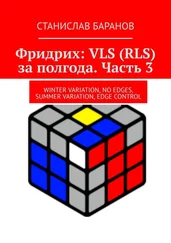Koji Suzuki - Edge
Здесь есть возможность читать онлайн «Koji Suzuki - Edge» весь текст электронной книги совершенно бесплатно (целиком полную версию без сокращений). В некоторых случаях можно слушать аудио, скачать через торрент в формате fb2 и присутствует краткое содержание. Город: New York, Год выпуска: 2012, ISBN: 2012, Издательство: Vertical, Жанр: Ужасы и Мистика, на английском языке. Описание произведения, (предисловие) а так же отзывы посетителей доступны на портале библиотеки ЛибКат.
- Название:Edge
- Автор:
- Издательство:Vertical
- Жанр:
- Год:2012
- Город:New York
- ISBN:978-1-935654-95-7
- Рейтинг книги:4 / 5. Голосов: 1
-
Избранное:Добавить в избранное
- Отзывы:
-
Ваша оценка:
- 80
- 1
- 2
- 3
- 4
- 5
Edge: краткое содержание, описание и аннотация
Предлагаем к чтению аннотацию, описание, краткое содержание или предисловие (зависит от того, что написал сам автор книги «Edge»). Если вы не нашли необходимую информацию о книге — напишите в комментариях, мы постараемся отыскать её.
Edge — читать онлайн бесплатно полную книгу (весь текст) целиком
Ниже представлен текст книги, разбитый по страницам. Система сохранения места последней прочитанной страницы, позволяет с удобством читать онлайн бесплатно книгу «Edge», без необходимости каждый раз заново искать на чём Вы остановились. Поставьте закладку, и сможете в любой момент перейти на страницу, на которой закончили чтение.
Интервал:
Закладка:
A tiny dot of light vanished quietly from the screen. As clear as day, the footage showed a magnitude-three star on the opposite side of the Milky Way’s center that was there one moment, and the next, gone. And almost exactly one second later, a nearby star also vanished. Two stars located fairly close to each other had disappeared, one after the other.
Stars gave off light due to the nuclear fusion reaction taking place at their core, and the lifespan of a star depended on its size and the amount of matter it contained. That was not to say that a star with greater mass had a longer lifespan. In fact, in a star with more mass, the greater gravity would accelerate the process of nuclear fusion, causing it to burn out sooner. Stars with less mass underwent fusion more gradually and were therefore longer-lived. Our sun was somewhere in between, with an estimated lifetime of around ten billion years. When we see a star disappear from our vantage point on Earth, it had actually met its demise long, long ago.
The first possibility that popped into Mark’s mind was that the stars had met their end by way of a supernova explosion. He couldn’t say for sure without analyzing their non-infrared electromagnetic profiles. In any case, it was extremely rare to witness a star’s death, and he could barely contain his excitement. On the other hand, deep inside, Mark harbored a flickering doubt. The stars had vanished so suddenly, without any final flare up. They didn’t appear to have been enveloped in some enormous astral phenomenon. Rather, they had simply, spontaneously and irrevocably, ceased to exist.
If he could pinpoint the location of the missing stars and their distance from Earth, he would know how long ago the event had taken place. He had probably just witnessed phenomena that had taken place thousands or tens of thousands of years ago.
Quickly, Mark reported what he had seen to the Hilo Base Facility, making mention of the fact that the electromagnetic waves required analysis. The Hilo Base Facility in turn fiber-optically transmitted the report of two successive star disappearances to NAOJ headquarters in Mitaka, Tokyo.
Fifteen minutes after Mark had reported his observations, the footage came to the attention of Dr. Jun Urushihara at headquarters. Urushihara went through very much the exact same thought process Mark had, only to wind up equally perplexed.
It isn’t normal for stars to just blink out like this .
Urushihara felt a tickling sensation deep in his nose and sneezed loudly as was his habit when he smelled something odd.
December 19, 2012
The day after the Stanford University Linear Accelerator Center obtained its new computer, the IBM Green Flash, the first thing Gary Reynolds did was to run a program designed to calculate the value of Pi. The program made use of the newest algorithms and was expected to be able to calculate Pi to several trillion decimal places.
Calculating the value of Pi — the ratio of the circumference of a circle to its diameter — produced an arcane string of numbers. It was fair to say that the history of the pursuit of Pi was the history of mathematics itself. Four thousand years ago, the Babylonians calculated Pi as 3 1/8, and in the third century B.C. Archimedes had already arrived at the value 3.14163. Pi enchanted mathematicians over the ages and was proven to be an irrational number in the eighteenth century and a transcendental number in the late nineteenth century — a value whose decimal representation never ends or repeats, with no patterns arising no matter how many decimal places are calculated. Nonetheless, humankind never tired of pursuing more accurate values of Pi. The attempt to calculate it to ever-longer decimal representations was more than a mere game and correlated deeply with the mathematical achievements of each era.
For Gary Reynolds, a research assistant in the Mathematics Department, calculating Pi was a simple task. Basically, once he launched the program, his work was done. All he had to do was sit back and let the computer do its job. It wouldn’t take the program long to arrive at a value of 500 billion digits — that could be accomplished by this evening. The current world record was approximately one trillion digits, but surpassing it wasn’t Gary’s goal today. Before he could adopt this new computer as his sidekick, Gary wanted it to prove itself worthy of his trust. One thing was sure: achieving the feat would require a tremendous volume of operations. Once the computer calculated Pi to a few hundred billion digits, it would be easy enough to check the values. Any operational failures would show up as wrong values, making them easy to spot. If the numbers matched up, there was no issue. If they deviated past a certain decimal point, the system was set up to trigger an alarm indicating some sort of software or hardware glitch.
Gary had initiated the program that morning and checked on it again at lunchtime. Everything was functioning smoothly. But two hours later, when he checked in with the IBM Green Flash once more, Gary swore softly to himself. The computer had halted its calculations.
The reason was immediately obvious. The computer had started coming up with digits never before produced in any calculation of Pi.
Just great .
Gary’s greatest concern was that there might be a flaw in the program. Christmas vacation was right around the corner. If this wound up being a time-consuming problem, it might ruin everything. Gary had plans to travel to Geneva during winter break. He was supposed to meet with the director of an international think tank who was almost guaranteed to offer Gary a job.
Gary was known for being uncharacteristically shrewd for a pure mathematician. He had not the slightest interest in staying on at Stanford as a researcher. He made no bones about his ambitions: he intended to accomplish as much as he could while still enrolled as a student and then market his skills to a major corporation. As a teenaged math prodigy, Gary had gotten all the mileage he could out of his talents, and his main interest now was acquiring the income and social status to live a life of ease.
He shot a glance at the spot where the error had occurred. Somewhere beyond the five hundred billionth decimal place, the computer had begun to churn out a long string of zeros. But Pi was a proven irrational and transcendental number. The appearance of a string of zeros meant that a pattern had been reached — a prospect that simply wasn’t possible.
Gary clucked his tongue as he considered where the problem might lie. He sincerely hoped it was a hardware issue. If it was, it was beyond the scope of his responsibilities and he would be off the hook.
After executing a standard check and confirming that the hardware was running properly, Gary gamely threw up his hands and consulted his fellow programmers. If they needed to track down a calculation mistake, the odds of finding it were better with more people working on it. Another mathematician might have been too proud to seek help, but Gary’s top priority was not missing his meeting during Christmas break.
“Hey. What do you guys make of this?” Breezy and outgoing by nature, Gary approached his three nearest colleagues and casually solicited their unpaid input.
The three young programmers scrutinized the program from various angles but were unable to pinpoint the error. Then one of them suggested running an older program on the IBM Green Flash that could calculate Pi to six hundred billion decimal points, while simultaneously running the new program on a different computer. The researchers set the programs in motion and sat back to wait; the results would be evident the next day.
The following morning, just after 10 a.m., the four researchers found themselves staring at not one but two computers that had stopped computing after 500 billion digits. Their problem had doubled. The results were exactly the same as last time, with a seemingly endless string of zeros emerging somewhere after 500 billion digits. At first, the four researchers were struck dumb by their discovery. Not even the lamest of explanations came to mind, and all they could do in response was sigh.
Читать дальшеИнтервал:
Закладка:
Похожие книги на «Edge»
Представляем Вашему вниманию похожие книги на «Edge» списком для выбора. Мы отобрали схожую по названию и смыслу литературу в надежде предоставить читателям больше вариантов отыскать новые, интересные, ещё непрочитанные произведения.
Обсуждение, отзывы о книге «Edge» и просто собственные мнения читателей. Оставьте ваши комментарии, напишите, что Вы думаете о произведении, его смысле или главных героях. Укажите что конкретно понравилось, а что нет, и почему Вы так считаете.












